Photographs: Reuters
To compete on that field, a corporation needs substantial economies of scale and a large war chest, as well as a tolerance of protracted losses on a bill that would take years to repay.
Software giant Microsoft took on the challenge to begin work on its own game machine, extending its tremendous technological shadow further in a quest for a home entertainment centre.
In this extract from the book Playing to Wiin: Nintendo and the Video Game Industry's Greatest Comeback, author Daniel Sloan talks about what drove Microsoft to come up with the Xbox and the challenges it faced.
In March 1999, a senior team at Microsoft proposed launching the Xbox, intending to have game strategy become integral to the company's five consumer divisions.
A development plan called "Project Midway" emerged, named after the famed World War II battle that saw the United States regain control of the Pacific theater and begin to liberate occupied territories from the Japanese - a metaphor for the state of the game industry at the time.
...
How Microsoft took on the gaming industry
Image: Microsoft's entry startled few companies.Photographs: Reuters
The firm, launched in 1975 by Gates and Paul Allen, had become a feared money-making machine, and its prospects for at least spending its way to success seemed strong, although it would be veering starkly from its historic strategy of creating software that would run on other firms' machines.
Even with an estimated $36 billion to find its way, making consoles with other firms as key suppliers was a new and expensive ballgame.
However, the no-nonsense company ethos, which had made its college-dropout founders among the most successful businessmen in history while lifting the brand to ubiquity, was about to change, or at least wrinkle.
...
How Microsoft took on the gaming industry
Image: Bill Gates was not a gamer.Photographs: Reuters
Those forecasts, while correct, ultimately led Microsoft to delay its console launch as it prepared resources with a staff of about 1,000.
Gates, not originally a gamer himself, began to tout the entertainment's virtues, noting the hours he would play with his wife Melinda using beta versions of his company's games and hardware after putting their own children to bed.
However, for the more cynical, Microsoft's growing interest was ascribed to corporate concerns that Sony's PlayStation 2 would find hegemony in homes, pushing the lowly PC - and many of Microsoft's relationships - to also-ran status, as digital convergence success grabbed home entertainment and office space.
To promote his company's claim on the living room, Robbie Bach, a Stanford MBA and Microsoft executive, was tapped in the year 2000 as senior vice president of the Games Division to head the push into PC, online, and video gaming.
...
How Microsoft took on the gaming industry
Image: Xbox made its debut in 2001.Photographs: Reuters
Software to hardware
Bach and others had convinced management that Microsoft had to build its own console, after attempts at having computer makers develop hardware for it failed. He was now armed with $500 million for a promotional campaign led by McCann-Erickson, and though not a gamer, Bach was technically well versed and exceptionally media-savvy.
He proved a strong public leader for his young six-group team, responsible for everything from developer kits and hardware to software contractual ties.
By the E3 game summit in May 2000, Bach was already touting the new Xbox, which would debut a year later, as well as such opportunities as massive multiplayer games that potentially would involve hundreds or thousands of people in a sort of gaming Woodstock.
The Xbox, which did not run on Windows and was without keyboard or mouse, launched with about 20 software titles and sold for under $300.
"Our cost to produce Xbox will be significantly lower than Sony's, since the costs are off-the-shelf," Bach said.
...
How Microsoft took on the gaming industry
Image: Microsoft poached online gaming community eschewed by Nintendo.Photographs: Reuters
In a not always flattering comparison to PCs, the Xbox had an Intel CPU with 64 MB of memory, a 10-gigabyte hard disc, an NVIDIA graphics chip, and a DVD player, as well as an Ethernet connection enabling networking.
The online gaming connectivity that Nintendo eschewed would become fertile ground for Microsoft, which would push the consoles capability toward launching its own "Live" service in late 2002.
Bach expected Xbox to eventually become the No. 1 home console, complementing Microsoft's history as a PC games publisher, as well as its MSN network and Windows franchise.
Microsoft's PC games, however, would not cross over to the new console, although they could be rewritten to work on Xbox and become multiplayer experiences.
"Xbox brings Microsoft into the living room and den, where people are 10 or 15 feet from the television and there are two or three people playing at one time," Bach said.
"The PC attracts certain types of users to certain types of games that are played mostly behind a desk. It is primarily a single-user experience."
...
How Microsoft took on the gaming industry
Image: Halo was a winning title for Microsoft.Photographs: Reuters
Some industry observers said few of the 20 titles Microsoft quickly brought to market offered a compelling reason to buy an Xbox in a market already saturated with choice.
Microsoft considered a slate of financial incentives for game developers, similar to what Sony had used successfully on the original PS platform, but at least one game helped to bring attention to the console and set the stage for its online gaming push.
A Shining Halo Xbox's first winning title was Bungie Studio's sci-fi "Halo", which had been redesigned as a first-person-shooter game from an original PC-based game.
To nurture its own content, Microsoft had purchased Chicago-based Bungie in June 2000, adding the game maker (founded in 1991) to a growing stable. "Halo 2" was announced by September 2002, coming to market a little over two years later and becoming an essential conduit to "Xbox Live" service migration.
...
How Microsoft took on the gaming industry
Image: Nintendo had some of the biggest hits.Photographs: Reuters
Eventually, Microsoft would even invite small developers for its online retail business, but the giant also continued acquisitions, buying British game maker Rare in September 2002 for $375 million. Rare had created some of the Nintendo 64 console's biggest hits, including "Golden Eye 007," "Banjo-Kazooie," and "Donkey Kong 64"; Nintendo had sold its 49 per cent ownership in the family-run UK company as part of the acquisition deal with Microsoft.
Relations between Nintendo and Rare had soured over game budgets, escalating to the point that Rare had purportedly sent a year 2000 Christmas card with a black box under a holiday tree.
Meanwhile, Microsoft recognized the potential sting that losing the firm could inflict on Nintendo, while it harped on differences between the companies, saying Xbox games would be designed across the demographic spectrum.
"We're not going to focus just on the kid titles, like Nintendo does," Bach said. "Xbox is going to change video games the way MTV changed music."
...
How Microsoft took on the gaming industry
Image: Xbox's first title was Grabbed by the Ghoulies.Photographs: Reuters
Meanwhile, Rare's first Xbox title was "Grabbed by the Ghoulies", a game that did nothing to revive industry esteem.
Many observers said Nintendo had been fortunate to extricate itself from the relationship, and it was Microsoft's problem to solve now.
Nintendo of America's Minoru Arakawa, on the eve of leaving the company after more than 20 years, said the other Washington state titan was still learning to walk in the gaming world: "Microsoft is spending a lot of money, but they are beginners."
Nonetheless, Xbox launched almost simultaneously with the GameCube and quickly became a sales equal for Nintendo's moribund purple box in the units' first holiday season, as both companies tried to gain at least the market space left by Sega's hardware withdrawal.
To enhance its prospects further, Microsoft cut the Xbox's price in certain markets in April 2002, quickly followed by a similar move by Nintendo.
Microsoft hoped to kick-start greater enthusiasm while offering "thank you packages" of two free games and an Xbox controller to those who had purchased the console at the initial higher price.
Reproduced with permission from John Wiley and Sons, Asia. Copyright 2011 by Daniel Sloan

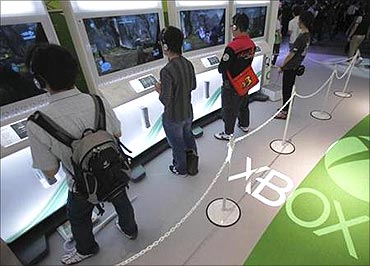

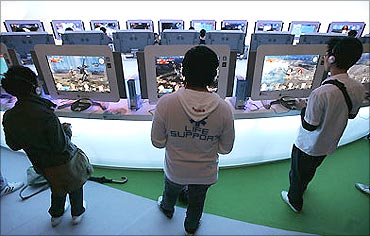
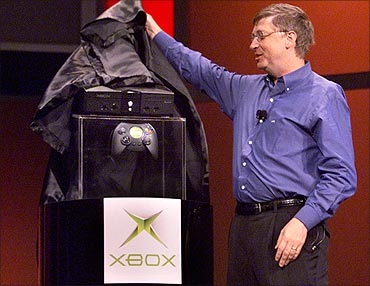

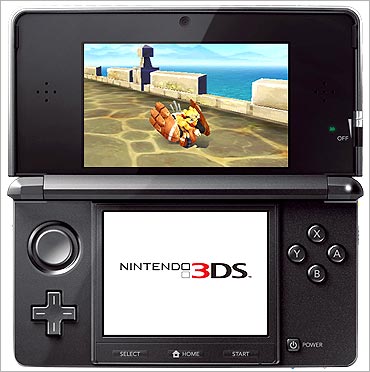
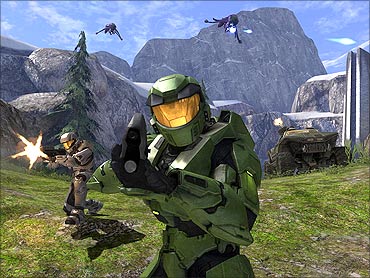
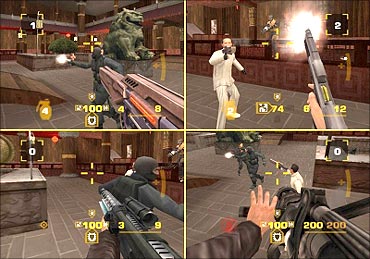
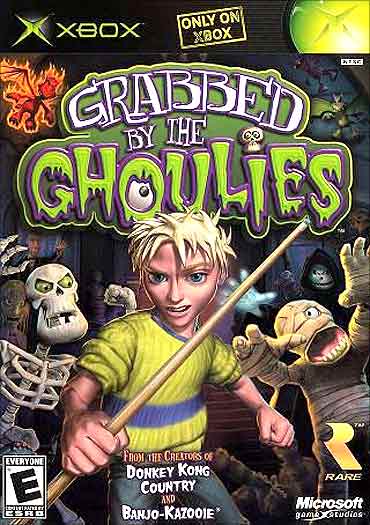

article